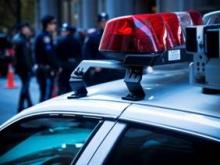Nearly half of North American police officers might be suffering from a sleep disorder that could interfere with the safe execution of their duties.
A survey of nearly 5,000 officers found that 40.4% of them screened positive for a sleep disorder, most of these undiagnosed. Those officers with a sleep disorder were significantly more likely to commit administrative errors, lose their temper with citizens, and even fall asleep while driving, Shantha M.W. Rajaratnam, Ph.D., and colleagues reported in the Dec. 21 issue of JAMA.
"Almost half [reported] having fallen asleep while driving" and about one-quarter said that this occurs one to two times per month, said Dr. Rajaratnam of Brigham and Women’s Hospital, Boston. "This is despite police officers apparently recognizing the dangers associated with drowsy driving." In a different survey of North American police officers, almost 90% regarded drowsy driving to be as dangerous as drunk driving, the investigators noted (JAMA 2011;306:2567-78).
The team conducted an online and in-person survey of 4,957 police officers, 97% of whom were based in the United States and 3% in Canada. The subjects responded to a variety of questionnaires that screen for sleep disorders, including obstructive sleep apnea, insomnia, restless legs syndrome, narcolepsy, and cataplexy. The survey also screened for shift-work disorder. Subjects provided basic health information, as well as information about alcohol intake and feelings of emotional burnout. They then completed monthly surveys for the next 2 years, with an accumulation of 15, 735 surveys.
The mean age of the cohort was 38.5 years; 82.3% were male. More than half (58%) reported their health as very good or excellent. However, 79.3% of the respondents were overweight or obese, and 33.5% were obese.
Most were patrol officers (66.5%), followed by managers (15%), criminal investigators (8.2%), and other job positions. Only 38% reported never having night-shift work; the rest worked overnight from once per month to nearly every shift.
Of the entire cohort, 2,003 (40.4%) screened positive for at least one sleep disorder. Obstructive sleep apnea was the most commonly identified problem, affecting 1,666 (33.6%) of the subjects. The next most commonly identified problem was moderate to severe insomnia, found in 281 (6.5%).
Other findings were shift-work disorder (269), restless legs syndrome (70), and narcolepsy with cataplexy (16).
The group with shift-work disorder represented 14% of those who worked overnight hours, the investigators noted. However, they said, if they applied the International Classification of Sleep Disorders–2 criteria for shift work disorder (excessive wake-time sleepiness or insomnia), then 1,004 (53.9%) of the police officers who worked night shifts screened positive.
The investigators found some significant associations between sleep disorders and health/safety outcomes. Those with a positive screen were almost three times as likely to report depression (odds ratio, 2.75) and emotional job burnout (OR, 2.87), and almost five times as likely to report having fallen asleep while driving after work (OR, 4.64). Of the entire cohort, 2,276 (46%) reported having fallen asleep while driving (56.9% at least once a month, and 13.5% once or twice a week).
At the 2-year follow-up, data were collected on 6,587 person-months for those with positive screens and 9,148 person-months for those with negative screens. Again, the authors found significant correlations between a sleep disorder and a behavioral or safety issue. Compared with those having a negative screen, those with a positive screen were 43% more likely to make an administrative error, 51% more likely to fall asleep while driving, and 63% more likely to make a fatigue-related safety error.
Sleep disorders also significantly correlated with public interaction. Those with positive screens were 25% more likely to experience uncontrolled anger at a citizen or suspect, and 35% more likely to incur a citizen complaint.
Over the follow-up period, those in the cohort experienced 287 motor vehicle accidents, which were 49% more common among those who had reported falling asleep while driving and 68% more common among those who reported falling asleep while stopped in traffic.
Dr. Rajaratnam reported numerous financial relationships with pharmaceutical and medical device companies. The study was sponsored by National Institute of Justice and the Centers for Disease Control and Prevention.


